The benefits of influencer marketing (+ what the C-Suite cares about)

Table of Contents
The benefits of influencer marketing are far beyond a buzzworthy tactic. Brands recognize that influencers are strategic business drivers in a brand’s marketing strategy, and C-suite leaders expect tangible results from influencer marketing efforts. They want influencer initiatives that go beyond vanity metrics to show the real impact on brand growth, customer acquisition and long-term loyalty.
To earn the support and resources needed from decision makers, your influencer marketing program must be positioned as integral to broader business objectives. And more importantly, your influencer campaigns must prove their role in driving revenue and competitive advantage.
In this article, we break down the benefits of influencer marketing, and how the right strategy can catalyze your brand. You’ll also hear directly from Sprout leaders about why brands should think differently about influencer marketing when integrating it within their overall marketing strategy.
3 elements to a successful influencer marketing strategy
An influencer marketing campaign uses individuals with a strong social following to promote a brand. The State of Influencer Marketing Report shows over half of marketers (59%) plan to partner with more influencers in 2025 compared to 2024. This shift underlines a universal truth: trusted figures influence our purchase decisions, and brands are taking notice.
But you don’t realize the benefits of influencer marketing by simply collaborating with someone with a high follower count. It has to be strategic. Here are three important elements to consider as you build an influencer strategy.
Align with the right influencers
Align with the right influencers for your brand so your brand message resonates with an already engaged audience. When deciding how to find the right influencers, you must prioritize values, style and audience that match your brand. It’s also important to align influencer activities with platforms that drive high engagement and conversion rates.
Sprout Social Influencer Marketing enables you to find creators who truly align with your brand’s key topics and values. Search among thousands of influencers from a database by using AI-powered tools like a Brand Fit Score and brand safety reports to identify topically relevant influencers who align with your brand and audience.
This topical alignment ensures the influencers you connect with have authentic expertise and a genuine voice around the themes that matter most to your brand, so you can improve campaign relevance and audience trust.
Plus, with advanced social listening and keyword tracking, you’re also able to identify influencers actively engaging in conversations relevant to your industry and audience.
Integrate influencer marketing with your overall marketing strategy
Weave influencer marketing into your broader marketing strategy instead of treating it as a standalone effort. When aligned with your brand goals, messaging and campaigns, influencer partnerships enable you to drive consistent storytelling, reinforce key narratives and extend your reach across multiple channels.
One way we integrated influencers beyond social was through their collaboration on The 2025 Sprout Social Index. Influencers like Brianna Doe, Founder of Verbatim Agency, and Arielle Berlinsky, Director of Marketing at Movement Strategy, contributed their expertise to help shape the report’s insights. They also participated in webinars based on Sprout reports and amplified them on LinkedIn to extend reach.
Think long-term impact
A lasting impact is one of the benefits of influencer marketing you can bank on. Especially so, because collaborating with influencers who bring fresh perspectives and stay ahead of industry trends helps keep your brand relevant, innovative and future-focused.
Coupled with the fact that more consumers are turning to social platforms, rather than traditional search engines to discover products and brands, integrating influencers into your marketing approach is more relevant than ever for a lasting brand impact. It’s also pertinent to ROI.
Watch this video for more insights from Sprout’s executives and decision makers on how influencer marketing impacts your overall brand.
The benefits of influencer marketing for brands
Influencer marketing amplifies your brand’s reach and credibility. This directly aligns with C-suite objectives of long-term revenue growth by enhancing brand engagement, conversions and brand recall. Let’s dig in.
1. Improves social SEO and discoverability
Influencer marketing boosts social SEO and discoverability through high-quality, shareable content that drives engagement and signals relevance to social algorithms. When influencers tag your brand, use strategic keywords and link to your pages, it increases your visibility across platforms. And with more and more people flocking to social networks to search for what they need, influencer marketing improves your chances of appearing in social search results.
“Fewer people are searching from a search provider and more people are starting their search on social because influencers are creating exactly what you’re looking for. And that’s why influencer marketing drives 5 times the ROI than traditional marketing tactics,” Brittany Hennessey, VP of Outbound Product Management at Sprout, explains.
This heightened presence makes it easier for new audiences to discover your brand organically and also generate sales. Sprout’s Q2 2025 Pulse Survey revealed 76% of all social users were influenced by social media ads, influencer posts and brand content, and it played a role in their purchasing decisions over the last six months.
2. Increases brand awareness
Influencer marketing expands brand awareness by introducing your business to new, relevant audiences. When influencers promote your products authentically, they drive interest and visibility among their followers. This sets the stage for deeper engagement and potential conversions and is especially valuable as consumers increasingly rely on peer recommendations and social proof when exploring new brands.
By tapping into an influencer’s trusted voice, your brand gains credibility and recognition across a wider spectrum of potential customers. For example, Nike’s collaboration with sports star Naomi Osaka comes to mind.
The partnership boosted Nike’s brand awareness among younger audiences by aligning Osaka’s authenticity and activism with Nike’s messaging. Through campaigns that emphasized mental health, personal expression and her Japanese-Haitian heritage, Nike tapped into diverse, socially conscious audiences and reinforced its commitment to inclusivity and empowerment.
Tracking and measuring your influencer performance is also vital. But it can be tricky when you’re analyzing a third-party account. Sprout Social Influencer Marketing simplifies influencer metric-tracking by enabling you to measure metrics from a third-party account a.k.a. your influencer’s. This way, you get real-time campaign results across all platforms so you can track the engagement rates of your partnerships and present tangible data to decision-makers or your C-Suite team.
3. Builds brand trust
Influencer marketing builds brand trust by using authentic voices that audiences already believe in. This plays a big role in creating genuine connections between the brand and potential customers. When influencers share honest experiences and endorsements, it humanizes the brand and reduces skepticism. It’s this increased trust that translates into higher engagement and loyalty, which ultimately drives better ROI through more effective customer acquisition and retention.
As Layla Revis, VP, Brand & Social at Sprout, puts it, “Influencer marketing is seeing a stronger ROI because of that authenticity. They’re speaking to you as a friend. You can leverage an influencer or a creator to create an ad in their voice, in the way their audience already likes them and wants to be talked to.”
This genuine connection grows even stronger when influencers share their own expertise and real-world experience. For example, Korean skincare brand Some by Mi collaborates with dermatologist influencer Dr. Adel (@dermatology.doctor) to lend medical credibility to their products and win audience trust.
4. Enriches your content strategy
Influencers bring fresh creativity that energizes your brand’s story and keeps your audience engaged. By showcasing innovative ways to use your products and highlighting your brand’s dedication to originality, they amplify visibility and deepen connections, essential for standing out in a crowded social landscape.
BMW Canada used this strategy to amplify their latest innovation in parking technology. The brand collaborated with pro golfer Mac Boucher and used creative storytelling with a light-hearted spin to promote their brand.
5. Enhances customer engagement
Influencer marketing transcends top-of-funnel (TOF) goals by enhancing engagement with their prospects and customer base. This boosts a brand’s visibility and strengthens brand connection, leading to improved loyalty.
Influencers help organizations use these authentic interactions to build a loyal community around their brand. This becomes a powerful asset, driving repeat purchases and increasing customer lifetime value (CLV) through sustained engagement and trust.
Engaging influencers, like Camper the Golden, for Amazon’s dog birthday products transforms passive browsing into interactive experiences, compelling audiences to like, share and comment.
6. Targets niche audiences to amplify reach
Influencer marketing gives you the chance to target niche audiences in a way that feels natural and genuine while exploring an untapped market. A targeted approach ensures your marketing efforts don’t just cast a wide net but are strategically placed where they will make the most impact. It means more efficient use of resources and a higher probability of conversions.
The benefits of influencer marketing execs care about
The way consumers view brands has changed. The Index shows 25% of consumers identify brand memorability with strategic collaborations involving content creators and influencers. It’s all about authenticity and relatability.
The benefits of influencer marketing not only enhance customer experience and your organization’s profile but also offer additional advantages that attract the C-Suite’s attention. Here are five benefits execs want to see.
Improved customer retention
When a brand consistently partners with influencers, their audience trusts and cares about, it deepens emotional connections and builds long-term customer loyalty. These influencers act as familiar, credible voices, reinforcing the brand’s values and reliability over time.
As trust grows, customers are more likely to stay loyal, make repeat purchases and advocate for the brand. According to the Sprout Q2 2025 Pulse Survey, 64% of social users say they’re more likely to purchase from a brand that partners with an influencer they like. That number climbs to 76% for Gen Z and 74% for Millennials.
Suffice it to say, influencers are instrumental in turning one-time buyers into loyal brand advocates.
Better understanding of market drivers
Executives want to understand market drivers to make informed strategic decisions and stay ahead of industry shifts. For example, according to The 2025 Index, roughly 81% of consumers say social media compels them to make spontaneous purchases multiple times per year or more, with 28% making impulse purchases once a month.
Clear insight into what influences customer behavior and competitor movement helps business leaders allocate resources effectively and identify growth opportunities. Influencer marketing tools like Sprout’s enable you to identify creators aligned to your brand with topic-based semantic search so they’re aligned to the market drivers, creating more impactful brand partnerships.
You’re also able to measure your target audiences across multiple platforms and analyze conversations on various topics that mention your brand to find critical insights.

Enhanced competitive positioning
Influencer marketing can improve your competitive positioning through targeted insights. For example, Influencer Marketing by Sprout Social enables you to track and analyze your competitors’ social media presence to uncover gaps in content or engagement. These insights help identify influential creators actively discussing your industry, topics they’re covering and the platforms they’re using, so you can spot opportunities to fill those gaps.
You’re able to stay ahead of the curve with real-time trend reports that surface the most talked-about products, personalities and events. Sprout’s Influencer Marketing platform also enables you to manage competitive influencer campaigns more efficiently by organizing influencer data, comparing custom fields and benchmarking performance goals—all in one place.
Business growth on limited budgets
Let’s face it—successful influencer marketing requires a dedicated budget. Several factors can influence your campaign costs, including content ownership rights, extended usage, campaign duration, influencer tiers, content formats and paid promotion strategies. Each of these elements plays a key role in shaping your overall spend and has a direct impact on the ROI you can expect, regardless of your campaign priorities.
You can make the most of your budget by focusing your spend on what already works. For instance, promoting high-performing creator content with Instagram Partnership Ads enables you to identify what resonates with your audience and amplify the message. From there, you can invest in boosting that content to improve efficiency across time, cost and conversions.
Stronger conversion rates and ROI
The 2025 Index highlights that 65% of executives want to see direct connections between social media campaigns and business goals. This means your social strategy needs to prioritize conversion rates and social ROI.
This is an achievable goal because there’s a direct correlation between influencer content and consumer action as revealed in our State of Influencer Marketing Report. Data showed that 49% of consumers made purchases at least monthly due to influencer posts, and 86% made at least one influencer-inspired purchase annually.
The effectiveness of an influencer campaign also stems from the influencers’ ability to provide social proof and exclusive incentives like discount codes that lead to higher click-through rates and ultimately, increased sales. You can track direct conversions through unique links and promo codes to get clear proof of impact and demonstrate influencer marketing ROI that goes well beyond brand awareness.
Capitalize on influencer marketing to boost your bottom line
Influencer marketing isn’t just about visibility—it’s a powerful driver of revenue. By partnering with trusted creators who speak directly to your target audience, brands can inspire action, build loyalty and accelerate purchase decisions. With the ability to track conversions through promo codes, affiliate links and engagement metrics, influencer campaigns provide a tangible, measurable impact. And this helps you boost your bottom line with both immediate and long-term gains.
Find out how to capitalize on influencer marketing to tap into an already engaged audience. Request a Demo today.

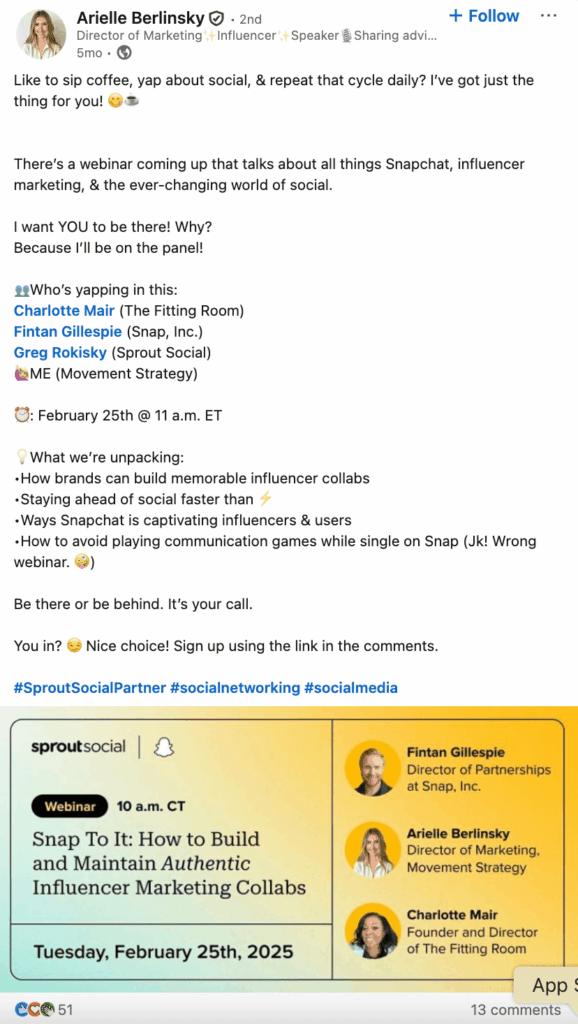
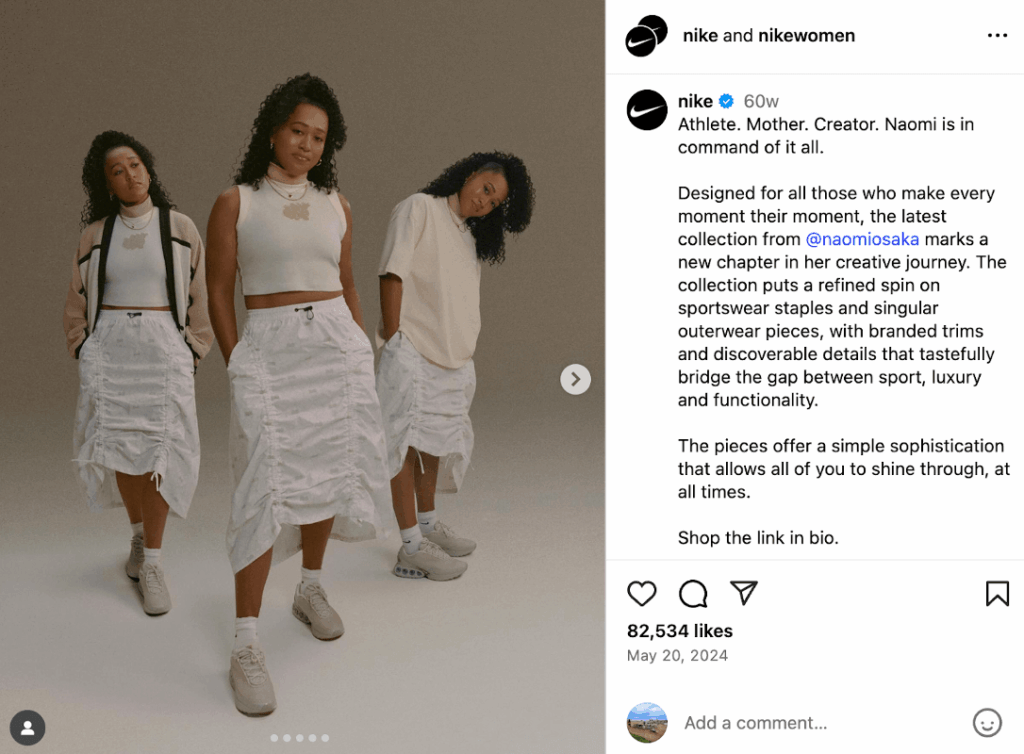
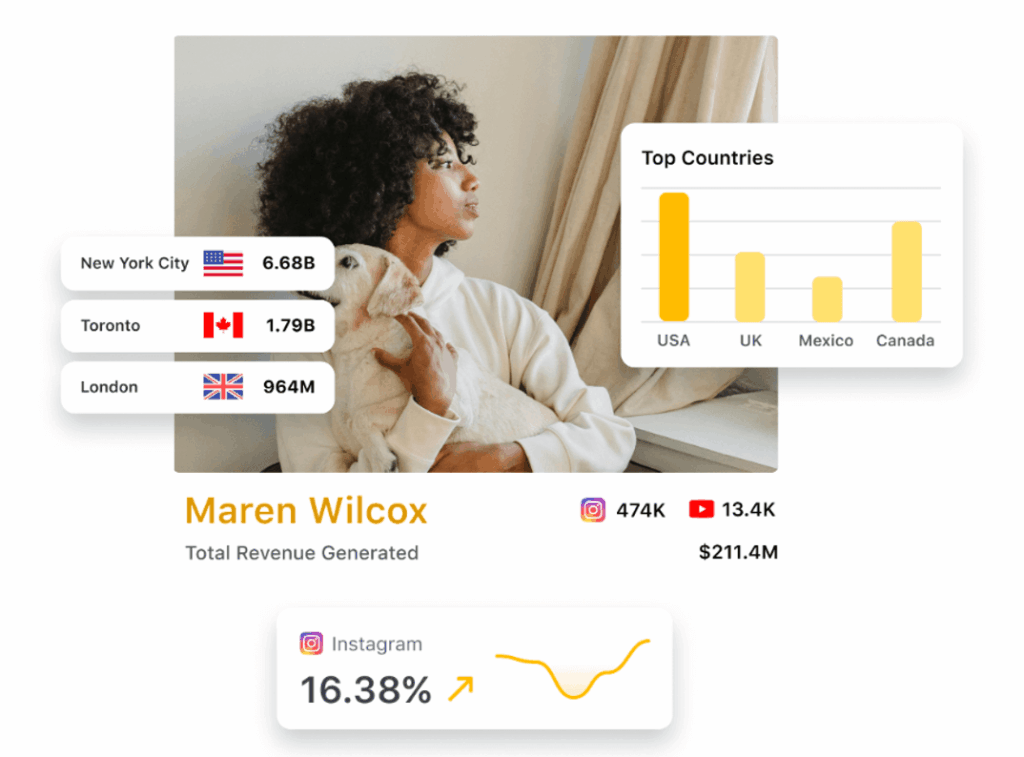
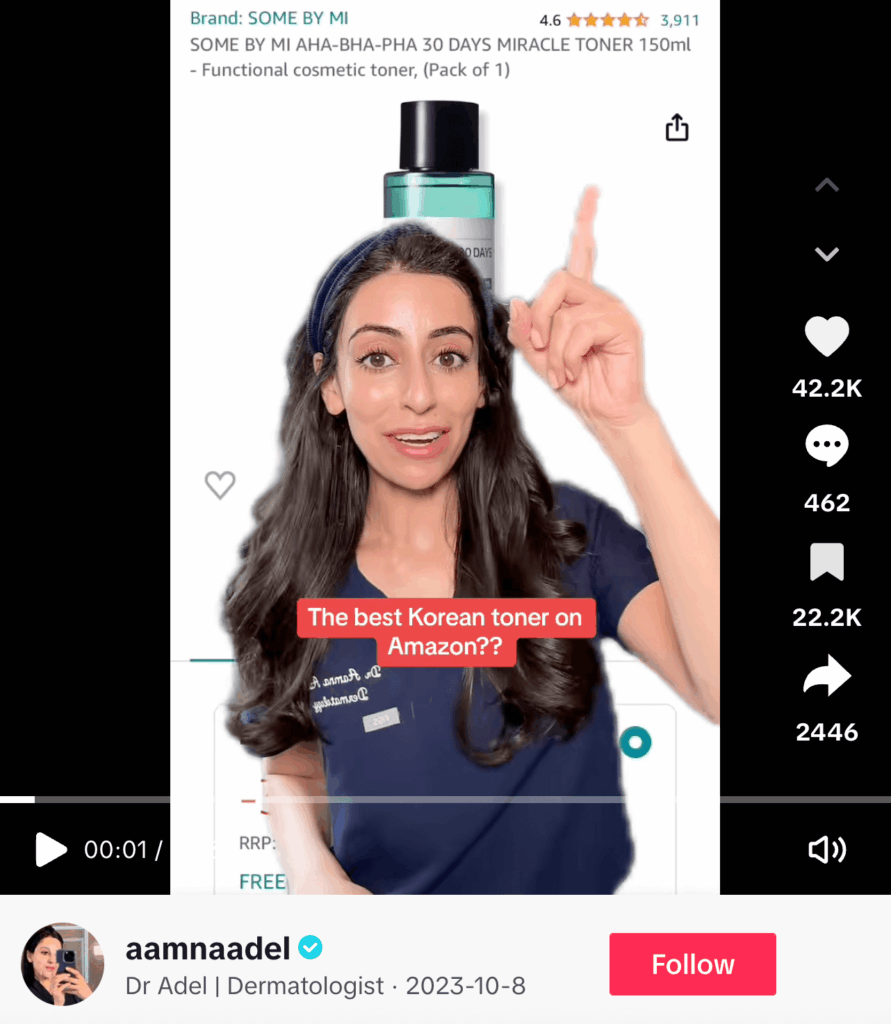
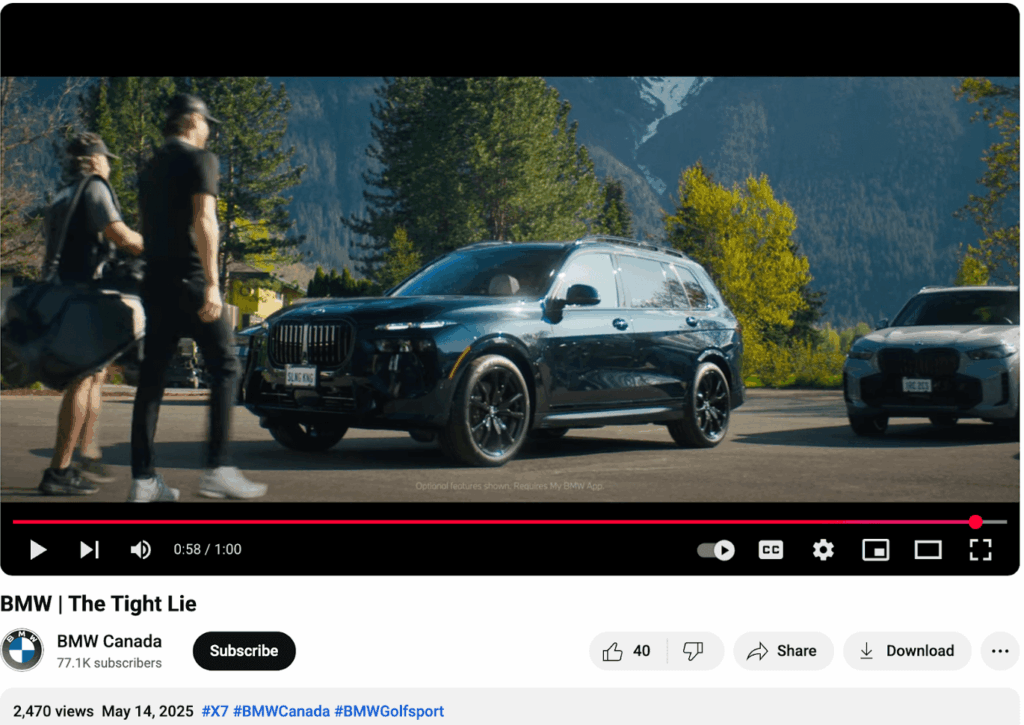



Share